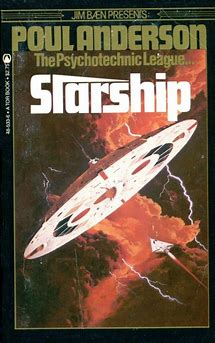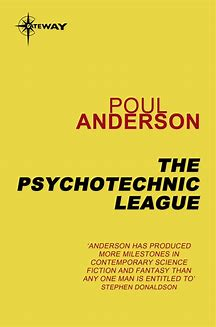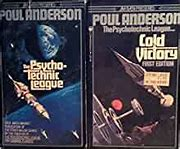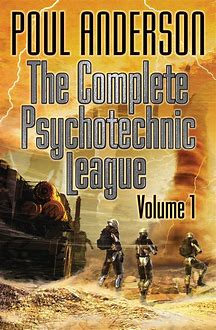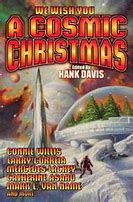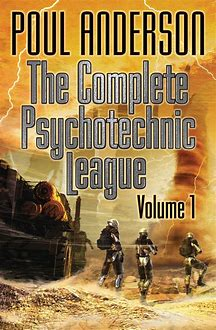"[Flandry] stood for a time under the stars, breathing the night wind. Then faintly across ten kilometers, he heard the crash and saw the flare of guns." (
XVI, p. 147)
Time, stars, wind and guns: basic themes.
Nias Warouw, who had wanted to remain a big man on a small planet, has no alternative but to seek his fortune elsewhere - yet another story that we would like to see continued.
The next instalment should be not "Hunters of the Sky Cave" but "The Game of Glory" but is it time to consider another future history for a while?
In the Psychotechnic History, we are interested in the, admittedly implausible, descriptions of technological progress so soon after World War III. That conflict occurred in a single year, 1958, when I was nine and attending a boarding school in Scotland. After that, everything diverged. One man's death matters. A different President matters. Hungary, Suez and Berlin have different outcomes. I am summarizing not Poul Anderson's texts but Sandra Miesel's italicized introduction. Miesel becomes the Hloch of the Psychotechnic History:
"1958, the year the H-bombs fell, set human history careening in a new direction. So obvious is this nexus, an entire genre of fantastic fiction asks the question, 'What if World War III had not happened?' Although romantics prefer to imagine alternative twentieth centuries as lost paradises of peace and plenty, the opposite is likelier to be true."
-Sandra Miesel, The Psychotechnic League IN Poul Anderson, The Complete Psychotechnic League, Vollume 1 (New York, October 1017), pp. 3-4 AT p. 3.
"Nexus" is a key concept in Anderson's Time Patrol series. Miesel comments on our reality through a character in another reality, as Anderson does in "Eutopia." (And, in Alan Moore's Watchmen, a superhero comments that the US would have gone mad as nation if it had lost in Vietnam.)
Still citing Miesel:
Fourre struggles against "Chaos" (p. 19) although not "the Chaos" of the Technic History;
famine, plague, want and radioactivity are slowly conquered (well, not very slowly);
the Years of Hunger are followed by the Years of Madness - which sound like Heinlein's Crazy Years;
there are quieter times, global peace, prosperity, space exploration, the Psychotechnic Institute, happy developments...
Space and psyches are external and internal frontiers - or are they? Does this word apply to both? Physically, all that is inside our brains is interacting neurons but they somehow cause consciousness. Mobile organisms interacting with their environments become increasingly sensitive, then conscious, through neuronic interactions. If we understood this process, then we would understand ourselves.







